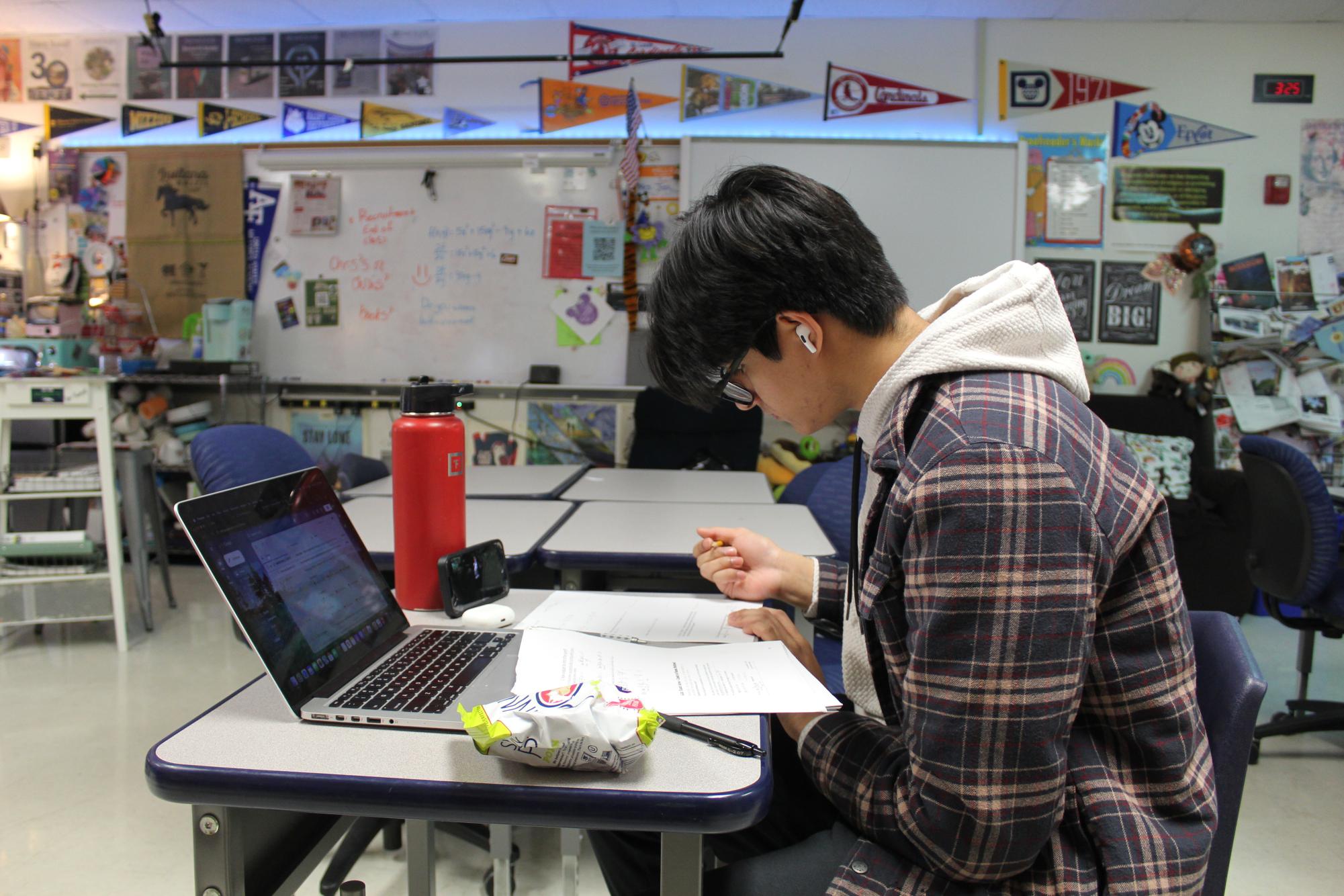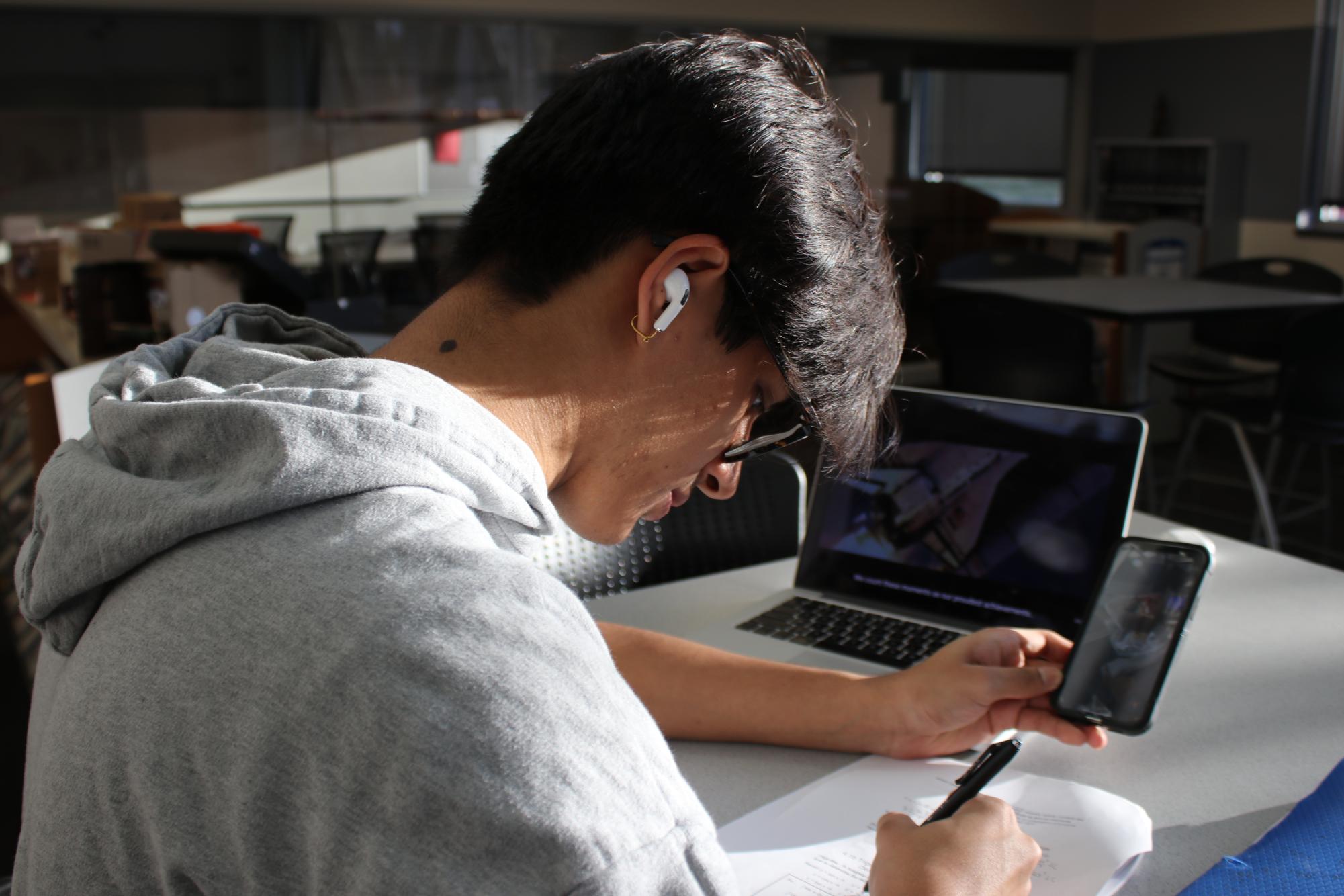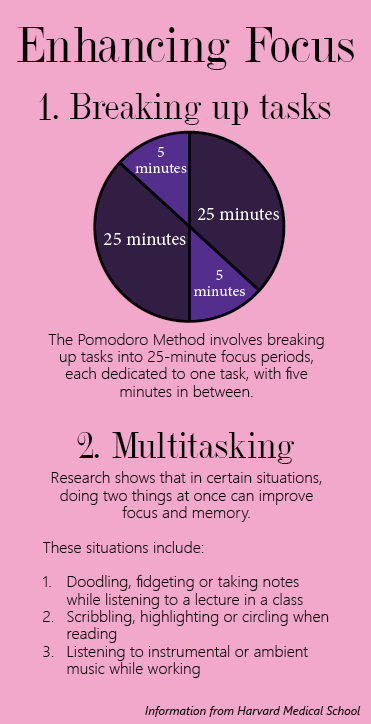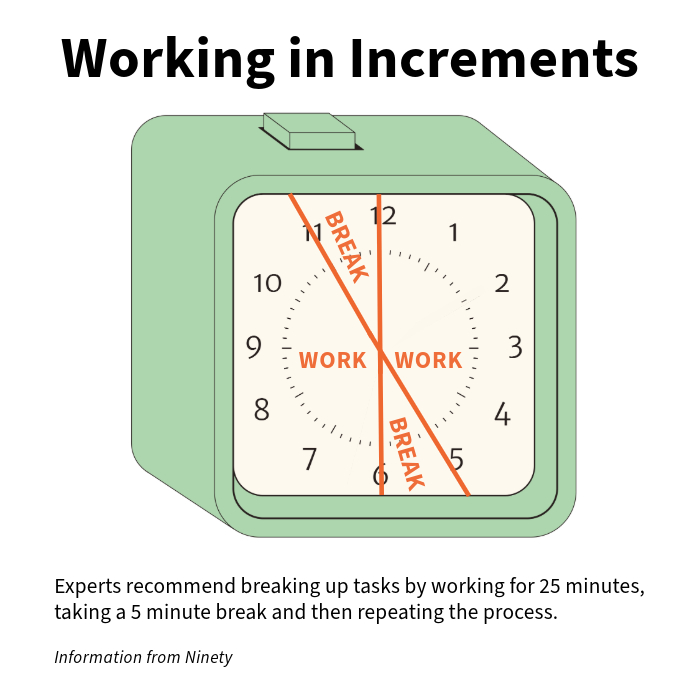Multitasking

With “Suits” playing in the background and his friends chatting on Facetime, Mehul Mushuni, junior, looks down at his AP Calculus AB homework.
His worksheet still isn’t finished, and it’s 3 a.m.
“That assignment should have taken me like 15 minutes but ended up taking a full hour because of how distracted I was,” Mushuni said.
Mushuni is one of the 97.5% of people who are unable to multitask effectively according to the Psychonomic Bulletin and Review. Students who attempt to multitask often feel the repercussions as a result.
“A lot of the time, I end up getting too distracted or confused between two different subjects,” Mushuni said.
Ashley Hobbs, psychology teacher, said that even though people are able to multitask, they should avoid doing so.
“Nobody is as efficient or effective at the tasks they’re doing when they’re trying to do more than one at a time,” Hobbs said.
Multitasking hinders productivity by 40%, according to Psychology Today.
The psychological process behind multitasking is divided attention. This occurs when the brain tries to pay attention to two things at once, such as watching a TV show while also writing a paper, Hobbs said.
“The problem with that is now neither one of those things are getting our full attention,” Hobbs said.
This divided attention is what makes multitasking less productive because an activity needs the brain’s full attention to be completed, Hobbs said.
Hobbs recommends using a checklist to keep track of tasks to avoid multitasking. She also said sleep is vital.
Additionally, Hobbs suggests breaking work into 15-30 minute increments and then taking a break or switching tasks for another 15-30 minutes. The longer a person works at one task, the harder it is to be efficient.
“We’re going to get tired, we’re going to get distracted, overwhelmed, and so it’s going to start taking us longer to do everything and it’s going to be less effective,” Hobbs said.
Hobbs said that if a person feels like they constantly need to multitask, they have probably committed to too many activities.
“It’s better to do things and do them well than it is to commit to doing a lot of things and not be able to do any of them well,” Hobbs said. “Time management is something we can work on, but you can’t make more hours in the day.”

Sofia Vardanyan, sophomore, often switches between assignments to keep her mind fresh. She alternates between reading her history textbook and completing math worksheets.
Vardanyan finds that the effects of multitasking outweigh the potential benefits.
“Thinking about one thing and doing another makes it difficult when you have a lot of tasks and a short amount of time,” Vardanyan said. “Multitasking burns you out and takes a lot more energy, so although I do feel accomplished, I feel very tired after.”
Dr. Nelson Cowan, a Curator’s Distinguished Professor at Mizzou, conducts research focused on memory and attention. To focus on tasks, Dr. Cowan recommends minimizing external and internal distractions.
External distractions are the distractions happening in a person’s environment, like someone talking in a room where a person is working. The easiest thing to do is find a way not to be in the distraction or train yourself to ignore it, Dr. Cowan said.
“If people are talking around you and you’re telling yourself, ‘There’s no way I can do the task because of the distraction,’ that may be worse than if you tell yourself, ‘It’s not so bad I’ll just keep doing what I’m doing’,” Dr. Cowan said.
An internal distraction is something that is bothering a person. Although it may be difficult, people have to find ways to make peace with the issue, Dr. Cowan said.
Some people may use music to do this.
“I have a theory that some people find their internal distraction annoying, and studying to music may distract them from their internal distraction,” Dr. Cowan said.
People may not know how much they are missing because of their multitasking.
“Being aware that multitasking is interfering with your learning is the first step in minimizing the distraction,” Dr. Cowan said.
Shruti Sugumar, senior, prefers to have a TV show in the background when she works. Recently, she finished rewatching “Gilmore Girls.”
“My friends all make fun of me for how fast I’m able to go through TV shows because something’s always running, no matter if I’m cleaning my room, doing homework or washing dishes,” Sugumar said.
Growing up, Sugumar saw her parents work in front of the TV and adopted the habit when she started high school.
“I don’t really like being in the quiet, and watching something fills the white noise otherwise I get off topic or start thinking about stuff,” Sugumar said.
Sugumar adapts this routine if she needs to study for an assessment and complete homework. She will watch videos about the topic her test is over while working on her homework.
While it may not work well for everyone, Sugumar finds having a show in the background helps her get started on her work.
“Just sitting down and trying to get focused is a lot harder when something isn’t running in the background,” Sugumar said.
Dr. Lisa Willoughby is an undergraduate program coordinator at Saint Louis University and an associate professor of psychology. She said that multitasking may sometimes be effective.
“If you’re doing something that might be fairly practiced or automatic, then you can kind of manage multiple things a little bit better,” Dr. Willoughby said. “With that said though, people do tend to convince themselves that they’re really good at a task so they can multitask when they should not.”
People should avoid multitasking when possible and instead focus on living in the moment, Dr. Willoughby said.
“If you’re in the present and you’re really thinking about what it is that you’re experiencing, that’s going to lead to a much more enriched memory,” Dr. Willoughby said.
Your donation will support the student journalists of Marquette High School. Your contribution will allow us to purchase equipment and cover our annual website hosting costs. You may become a PATRON by making a donation at one of these levels: White/$30, Green/$50, Blue/$100. Patron names will be published in the print newsmagazine, on the website and once per quarter on our social media accounts.





